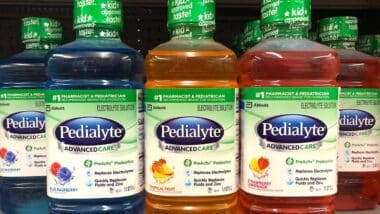 Nearly six million American women seek out fertility treatment in effort to become pregnant and are often prescribed Serophene (Clomid). However, the popular infertility drug is under scrutiny after a study by the U.S. Center for Disease Control and Prevention found that using Serophene while pregnant carries a significant increased risk of having a child born with a birth defect.
Nearly six million American women seek out fertility treatment in effort to become pregnant and are often prescribed Serophene (Clomid). However, the popular infertility drug is under scrutiny after a study by the U.S. Center for Disease Control and Prevention found that using Serophene while pregnant carries a significant increased risk of having a child born with a birth defect.
Researchers in the CDC study found that women who took the fertility drug Serophene during pregnancy had a 300 percent greater chance of birth defects when compared to non-users. Due to the fact that Serophene can stay in the system for several weeks after discontinued use, pregnant women may inadvertently cause fetal exposure to the infertility medication.
Serophene Birth Defect Risks
The fertility drug Serophene effectively helps women become pregnant in about 20 percent of cases. Serophene works by stimulating hormones that release eggs from an ovary, which in turn increases the likelihood of becoming pregnant. Women who use Serophene also increase the likelihood of having multiple births.
Although the infertility drug creates an ideal environment for pregnancy, the FDA has classified Serophene as a pregnancy category X. This label means that the drug is known to cause birth defects in both humans and animals. An FDA category X label also means that “the risks involved in the use of the drug in pregnant women clearly outweigh potential benefits.”
Medical experts report that Serophene should only be used for a short amount of time and only under physician supervision. However, the conception medication is available online at a lower cost to consumers, which indicates that many women may be taking Serophene without any monitoring.
Serophene birth defects may include:
- Cleft palates
- Craniosyntosis (the premature fusion of an infant’s skull sutures)
- Down’s syndrome
- Omphalocele (organs outside of the body)
- Club foot
- Anencephaly (absence of parts of the brain or skull)
- Spina bifida
- Congenital heart abnormalities
- Septal heart defects (hole in the heart)
- Conjoined twins
- Esophageal atresia (closed esophagus)
- Stillbirths
Clinical studies have confirmed that Serophene consumers also have a spontaneous abortion rate of 22 percent.
Serophene is occasionally prescribed off-label for treatment of menstrual irregularities, male infertility, and longer breast milk production. The U.S. Food and Drug Administration has not approved Serophene for these treatments.
Serophene Birth Defects Lawsuit
Multiple Serophene lawsuits have been filed by women who claim they were unaware that the fertility treatment that could help them become pregnant might cause their child to be born with a life-threatening birth defect. In general, plaintiffs accuse the Serophene manufacturer of failing to warn of the risks linked to the fertility medication.
Those filing birth defect lawsuits seek financial compensation for the medical costs of treating some of the severe birth defect side effects of Serophene. Most are filed by parents on behalf of their child and seek compensation for the pain and suffering their child has endured.
In general, Clomid lawsuits are filed individually by each plaintiff and are not class actions.
Do YOU have a legal claim? Fill out the form on this page now for a free, immediate, and confidential case evaluation. The attorneys who work with Top Class Actions will contact you if you qualify to let you know if an individual lawsuit or class action lawsuit is best for you. Hurry — statutes of limitations may apply.
ATTORNEY ADVERTISING
Top Class Actions is a Proud Member of the American Bar Association
LEGAL INFORMATION IS NOT LEGAL ADVICE
Top Class Actions Legal Statement
©2008 – 2025 Top Class Actions® LLC
Various Trademarks held by their respective owners
This website is not intended for viewing or usage by European Union citizens.
Get Help – It’s Free
Join a Free Clomid Birth Defects Class Action Lawsuit Investigation
If you or a loved one became pregnant after taking Clomid and had a baby with a birth defect, you may have a legal claim. See if you qualify to pursue compensation for your child’s medical expenses, pain and suffering, and other damages by filling out the form below.
An attorney will contact you if you qualify to discuss the details of your potential case.
Oops! We could not locate your form.












